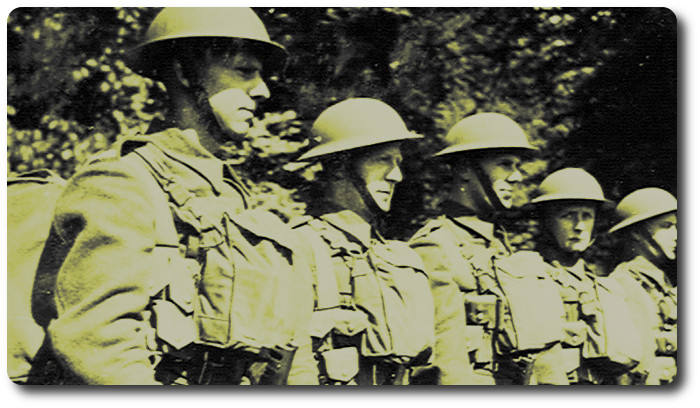Topic: Cold Steel

Company Officer's Experiences (1942)
The Age, Melbourne, Australia, 15 August 1942
The bayonet legend is also upheld by newspaper men who never miss an opportunity of referring to positions taken 'at the point of the bayonet.'
One of London's younger publishers is Michael Joseph. He served in the last war; in early middle age he has been caught up by the army again, and in 1939-41 served as a company officer with an infantry battalion guarding a stretch of England's coast when invasion was thought to be imminent. He has now written a very quiet, but not the less deadly, account of his experiences, having, obviously, not ceased to be a thinking and reflecting being because his new job brought him into intimate touch with War Office mentality. Mr. H.M. Tomlinson goes so far as to say that Mr. Joseph's little book—"The Sword in the Scabbard," by Michael Joseph (London; Michael Joseph)—should either have been censored "or else made compulsory reading at the War Office."

This is going a little far, because while Mr. Joseph points several morals, his narrative is concerned with the homely and sometimes amusing day to day life of a company commander. But the morals are important. One example will suffice: "I dare say the bayonet has its occasional uses, but I am prepared to wager not one infantryman in a thousand ever has a chance to use it. But the Army still swears by the bayonet. The bayonet legend is also upheld by newspaper men who never miss an opportunity of referring to positions taken 'at the point of the bayonet.' In case there should be any doubt as to the functions of this obsolescent weapon, the B.B.C. naively refers to 'hand-to-hand bayonet fighting.' Our troops are still taught that the Germans 'hate cold steel.' No doubt they do, but I somehow don't think we shall win the war by insistence on the vital importance of the bayonet in modern warfare. Bows and arrows were good weapons once."

